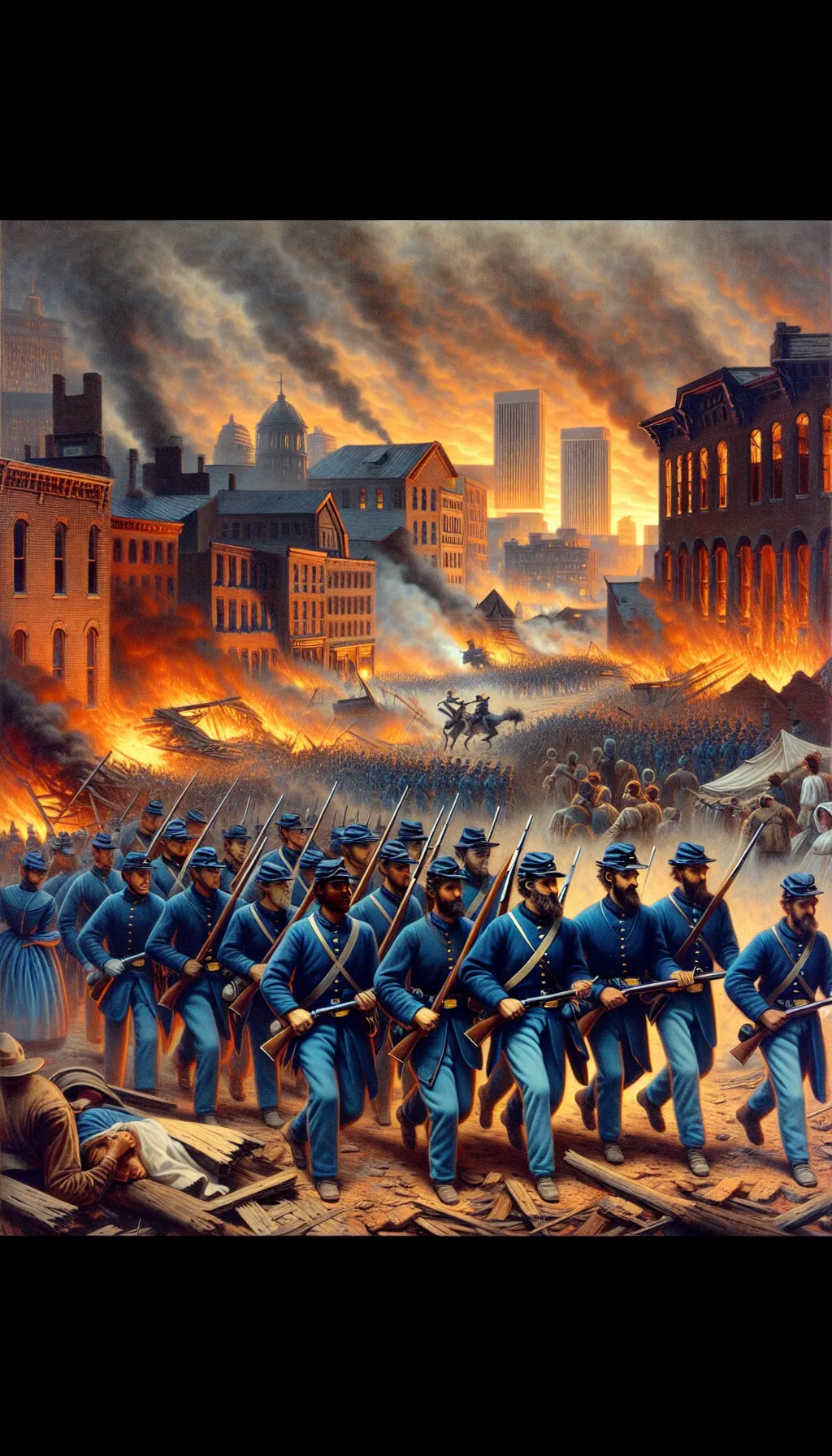United States – The Fall of Richmond – April 3, 1865
TLDR;
- Event: Union forces captured Richmond, Virginia, the Confederate capital, on April 3, 1865, marking a significant turning point in the American Civil War.
- Significance: The fall of Richmond was a psychological blow to the Confederacy, leading to the collapse of the Confederate government and setting the stage for General Robert E. Lee’s surrender at Appomattox Court House on April 9, 1865.
- Impact: The city was left in chaos and flames, with fires destroying buildings and homes, symbolizing the devastation of the war and the beginning of the nation’s healing process.
- Legacy: The capture of Richmond is remembered as a pivotal moment in the Civil War, symbolizing the reunification of a divided nation and the start of reconstruction.
–
–
Story
The air was thick with smoke and the acrid smell of burning as Union soldiers marched into Richmond, Virginia, on April 3, 1865. The Confederate capital, once a symbol of Southern defiance, was now a city in flames, its streets echoing with the cries of its fleeing inhabitants. The capture of Richmond was not just a military victory; it was a psychological blow to the Confederacy, signaling the inevitable end of a bloody and divisive war.

For four long years, Richmond had stood as the heart of the Confederate States, a bastion of resistance against the Union forces. But as General Ulysses S. Grant’s relentless campaigns wore down the Confederate Army, the fall of Richmond became inevitable. In the early morning hours of April 3, Confederate President Jefferson Davis and his government fled the city, leaving it to the mercy of advancing Union troops.
As dawn broke on April 3, Union forces entered the city, greeted by the sight of chaos and destruction. Fires, some set by retreating Confederate soldiers to prevent Union capture of supplies, others accidental due to the destruction of bridges and military stores, and some by panicked civilians or looters, raged uncontrollably, consuming buildings and homes. Yet amidst the devastation, the Union flag was raised over the Virginia State Capitol, where General Godfrey Weitzel’s troops formally took control, a symbol of hope and reunification for a nation torn apart.
The capture of Richmond was a turning point in the American Civil War. It marked the collapse of the Confederate government and paved the way for General Robert E. Lee’s surrender at Appomattox Court House six days later on April 9, 1865. The war that had divided a nation was drawing to a close, and the long, arduous process of healing and reconstruction was about to begin.
–
| Would a different strategy have changed the outcome of the Civil War? |